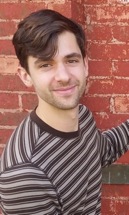
Communications and Signal Processing Seminar
Off-the-grid Compressive Imaging: Recovery of Piecewise Constant Images from Few Fourier Samples
Add to Google Calendar

In many practical imaging scenarios, including computed tomography and magnetic resonance imaging (MRI), the goal is to reconstruct an image from few of its Fourier domain samples. Many state-of-the-art reconstruction techniques, such as total variation minimization, focus on discrete "on-the-grid" modelling of the problem both in spatial domain and Fourier domain. While such discrete-to-discrete models allow for fast algorithms, they can also result in sub-optimal sampling rates and reconstruction artifacts due to model mismatch. Instead, I present a framework that allows for the recovery of a continuous domain "off-the-grid" representation of piecewise constant images from the optimal number of Fourier samples. The main idea is to model the edge set of the image as the level-set curve of a continuous domain band-limited function. Sampling guarantees can be derived for this framework by investigating the algebraic geometry of these curves. Finally, I show how this model can be put into a robust and efficient optimization framework by posing signal recovery entirely in Fourier domain as a structured low-rank matrix completion problem, and demonstrate the benefits of this approach over standard discrete methods in the context of undersampled MRI reconstruction.
Greg Ongie is a PhD candidate in applied mathematics at University of Iowa, Iowa City, IA, where he is also a member of the computational biomedical imaging group (CBIG) led by Prof. Mathews Jacob. His primary research interests are signal processing, convex optimization, and applications of compressed sensing to undersampled MRI reconstruction.
 MENU
MENU 
